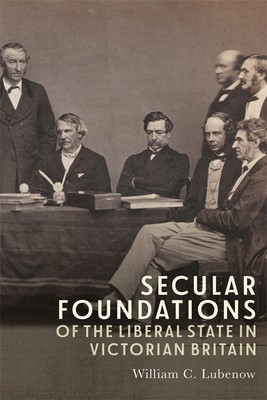
- We will send in 10–14 business days.
- Author: William C Lubenow
- Publisher: Boydell Press
- ISBN-10: 1783277971
- ISBN-13: 9781783277971
- Format: 15.6 x 23.4 x 1.9 cm, kieti viršeliai
- Language: English
- SAVE -10% with code: EXTRA
Secular Foundations of the Liberal State in Victorian Britain (e-book) (used book) | bookbook.eu
Reviews
Description
"Modern" Britain emerged from the outcome of the French Revolution and the Napoleonic Wars. The rather standard Whig account of the long nineteenth century is one of growing stability, progress and improvement. And yet nothing was preordained or inevitable about the period's stability. Ruling elites felt the constant anxieties of revolutionary terrorism. As Lubenow argues, it was a period of disorganization seeking organization. The great nineteenth-century reform acts against religious monopoly were aspects of this process of political organization. While religion did not disappear, these political actions gradually changed the constitutional position of religion.
As a result, a political vacuum was created which was then filled by a secular "clerisy". These "fit and proper persons", educated in the reformed universities, qualified by success in competitive examinations, began to fill positions in the Civil Service and in the professions. The effect was to replace the eighteenth-century system of confessional loyalties with a liberal political culture based on merit. Lubenow's latest study examines the work of these intertwining nineteenth-century secular-liberal processes. Steeped deeply in archival research, this book considers biographical characteristics such as education, political connections and social associations, but it is equally conceptually guided by categories such as liberalism and secularism. It fills an important gap in the political history of nineteenth-century British liberalism by taking up the question of entanglement of secularity and liberality in the foundation of the modern state.EXTRA 10 % discount with code: EXTRA
The promotion ends in 21d.13:35:21
The discount code is valid when purchasing from 10 €. Discounts do not stack.
- Author: William C Lubenow
- Publisher: Boydell Press
- ISBN-10: 1783277971
- ISBN-13: 9781783277971
- Format: 15.6 x 23.4 x 1.9 cm, kieti viršeliai
- Language: English English
"Modern" Britain emerged from the outcome of the French Revolution and the Napoleonic Wars. The rather standard Whig account of the long nineteenth century is one of growing stability, progress and improvement. And yet nothing was preordained or inevitable about the period's stability. Ruling elites felt the constant anxieties of revolutionary terrorism. As Lubenow argues, it was a period of disorganization seeking organization. The great nineteenth-century reform acts against religious monopoly were aspects of this process of political organization. While religion did not disappear, these political actions gradually changed the constitutional position of religion.
As a result, a political vacuum was created which was then filled by a secular "clerisy". These "fit and proper persons", educated in the reformed universities, qualified by success in competitive examinations, began to fill positions in the Civil Service and in the professions. The effect was to replace the eighteenth-century system of confessional loyalties with a liberal political culture based on merit. Lubenow's latest study examines the work of these intertwining nineteenth-century secular-liberal processes. Steeped deeply in archival research, this book considers biographical characteristics such as education, political connections and social associations, but it is equally conceptually guided by categories such as liberalism and secularism. It fills an important gap in the political history of nineteenth-century British liberalism by taking up the question of entanglement of secularity and liberality in the foundation of the modern state.

Reviews